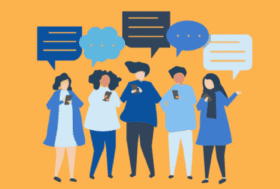Investigating pupils’ metacognition and self-regulation during, and returning from, remote learning

As educators reflect on the challenges and lessons learnt from the Covid-19 pandemic, Rachel Crowdy shares how ASSET Education collaborated with ImpactEd to better understand the impact of distance learning on their pupils’ metacognitive skills, self-regulation and independent learning behaviours.
ASSET Education is a trust of fourteen primary schools in Suffolk, catering for over 3,000 pupils. Having taken part in ImpactEd’s research into Lockdown Lessons (2020), they had access to rich diagnostic data on the impact that the COVID-19 crisis was having on the wellbeing, learning and engagement of their pupils and wanted to dive deeper into the metacognitive and independent learning skills of their pupils. In partnership with ImpactEd, they conducted an in-depth research project to get to the bottom of what makes a successful learner, both remotely and in class.
The research took place between November 2020 and June 2021 with 1591 pupils in Key Stage 2, and was conducted through a series of quantitative and qualitative questionnaires alongside semi-structured interviews. Pupil wellbeing and metacognition were quantitatively measured using the WEMWBS and MSLQ self-report questionnaires, which are widely used in educational research and recognised for their reliabilityIn assessment, the degree to which the outcome of a particular assessment would be consistent – for example, if it were marked by a different marker or taken again. An additional custom survey was developed by ASSET and ImpactEd and was based on existing validated scales which assess pupils’ school engagement, self-efficacy, motivation and goal orientation – associated successful remote learner skills. A custom qualitative survey was also used, which assessed various aspects of pupils’ lifestyles when they were learning remotely. Lastly, interviews were held with pupils who had scored highest in the quantitative measures and had been identified by their teachers as successful remote learners.
Approach to learning strategies
Metacognitive strategies to overcome challenges were predominantly drawn from the qualitative researchQualitative research usually emphasises words rather than quantification in the collection and analysis of data.. As part of this we used a small number of open-ended questions in the questionnaires, alongside semi structured interviews with a sample of Year 5 pupils who had scored most highly on the quantitative wellbeing and metacognition surveys.
Results highlight a range of metacognitive strategies that pupils adopted to overcome challenges or become ‘unstuck’ while learning remotely, such as drawing pictures or scanning through text to independently solve the problem. Pupils who had scored highly on the quantitative elements of the metacognition survey tended to follow some sort of multi-step process to solve problems:
“I normally try to work it out in my head and then try to work it out using a method and then if I can’t find it out then I ask someone to help me.”
“I get a piece of paper and find different ways of working it out”
It seemed that the ability for pupils to follow a clear process for managing their tasks and reviewing their learning was prevalent among pupils who scored more highly for wellbeing, metacognition and associated successful remote learner skills.
In the absence of the physical presence of a teacher when learning remotely, pupils have to engage in self-regulation, sustaining their own attention, pacing and motivation. Most pupils who were interviewed referred to trying to keep as much of a “normal school routine” as possible, with set start times and planned breaks. In addition to providing structure to the working day, breaks were highlighted as a useful strategy for overcoming challenges with their work, so they could “calm down and get back to it”. One pupil remarked:
“If I got stuck, I would then take a few minutes or hours off and ‘cos your brain got scrambled and then when I went back to work it got better.”
Pupils were also asked about their self-regulation – how they motivated themselves and maintained high standards when learning remotely. While some pupils identified being motivated by a parent “pestering” them to get their work done, other pupils were notably more goal-oriented. Some pupils described wanting to learn for the sheer enjoyment of learning new knowledge and “finding out things I didn’t know before” to “expand my knowledge”, while others were motivated by a sense of wanting to do well in their future:
“I want to do well in school so I won’t have a rubbishy [sic!] job, [so I can] get paid lots.”
Many pupils referred to enjoying the sense of control and autonomy when learning remotely, such as being able to listen to music, “which I can’t do at school”. One Year 5 pupil said that her favourite thing about distance learning was that it helped her spend more time thinking about how to get to answers as well as being told what they were.
The influence of exercise and reading habits
ASSET’s quantitative researchQuantitative research usually emphasises quantification in the collection and analysis of data. also highlighted a possible relationship between exercise and reading habits, and pupils’ wellbeing, metacognition and associated successful remote learner skills.
In relation to exercise habits, pupils were asked to rate how often they exercised when learning remotely. Pupils who reported exercising least saw decreases across all measures between March and June 2021, whilst pupils who exercised most increased scores across the board, particularly in their metacognitive scores.
ASSET was also aware of the potential impact of reading on their pupils’ wellbeing, metacognitive and independent learning skills. But they also wanted to explore the extent to which pupils’ perceptions of their own ability – their self-efficacy – affected these skills. They asked pupils to rate themselves between one and five for whether they considered themselves a strong reader, with one being that they ‘strongly disagreed’ that they were a strong reader and five being that they ‘strongly agreed’. The results showed that pupils who perceived themselves as competent readers scored consistently higher across all outcomes than pupils who had lower self-efficacy.
Finally, ASSET asked pupils whether they read more, less or the same when they were learning remotely compared with before the pandemic. The same pattern emerged: pupils who reported that they read more when they were learning remotely scored notably higher in all outcomes than pupils who read the same amount, who again scored higher than pupils who said that they read less than normal. ASSET’s research indicates not only the importance of reading on pupils’ learning and development, but also how pupils’ own perceived ability might influence a wide range of learning skills and attitudes.
Drawing lessons from school-based research
Through conducting this research, ASSET uncovered findings which will inform how they can enhance their learning environments, both remotely and physically, to help develop their pupils’ metacognitive skills, self-regulation and independent learning behaviours.
Phil Palmer, Co-Headteacher at The Oaks Primary School in Ipswich, reflected that the research with ImpactEd has ‘helped us to target the support we give even more tightly to ensure that we are meeting all of their needs, especially with regard to things we might otherwise not have found out.’ Particular key findings were that:
- the results indicate an association between reading and pupils’ metacognition, and the possibility that self-efficacy could be a motivating factor in self-regulation
- taking exercise and regular breaks may be useful metacognitive strategies for planning and managing tasks and successfully learning independently
- fostering experiences in which pupils can feel autonomous whilst gaining new knowledge or skills may go some way towards motivating pupils and cultivating their self-regulation.
Clare Flintoff, CEO of ASSET Education noted that ‘This research project has really helped us to dig more deeply into our children’s experience of remote learning and learn lessons ourselves. I am really looking forward to conversations with colleagues about how we might support the development of pupils’ self-efficacy and personal autonomy!’
To find out more about ImpactEd and their work supporting schools and trusts to conduct research and evaluate their impact, please see their website at www.impacted.org.uk.
Rachel Crowdy is School Partnerships Manager at ImpactEd, UK.










